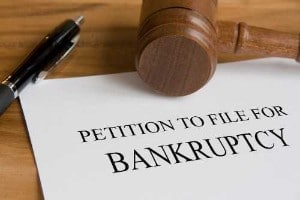Basic Bankruptcy Concepts
 If you are having serious issues with debt, an experienced Buffalo bankruptcy attorney will help you determine which individual bankruptcy option is best, putting you on the path to financial freedom. Here is some helpful information on basic bankruptcy concepts.
If you are having serious issues with debt, an experienced Buffalo bankruptcy attorney will help you determine which individual bankruptcy option is best, putting you on the path to financial freedom. Here is some helpful information on basic bankruptcy concepts.
Basic Bankruptcy Concepts | Voluntary vs. Involuntary
Bankruptcy can be voluntary or involuntary. A bankruptcy is voluntary if an individual or company freely chooses to file. A bankruptcy is involuntary if creditors force an individual or business to file. Voluntary bankruptcies are by far the more common. Involuntary bankruptcies usually occur in conflicts between the business and its creditors. If you’re reading this page, it’s very unlikely you’ll have to deal with an involuntary bankruptcy.
Basic Bankruptcy Concepts | Liquidation vs. Reorganization
This is the basic difference between Chapter 7 and Chapter 13 bankruptcy. In liquidation bankruptcy (Chapter 7), the court sells off all a debtor’s assets and gives the proceeds to the creditors. In a reorganization bankruptcy (Chapter 13),court “reorganizes” debts, making it easier for the debtor to pay them off over a prearranged period. This generally discharges only some or part of an individual’s or business’s debts.
Download Our Free Bankruptcy Law Guide
Basic Bankruptcy Concepts | Automatic Stay
The automatic stay is one of the most important benefits of filing for bankruptcy. Basically, the automatic stay temporarily stops all collection activities against the debtor, unless these are part of the bankruptcy process. The automatic stay provides the debtor a break in order to decide exactly how to handle the financial situation. With this moment of pause, the debtor can figure out how to proceed with paying back the debts without worrying about creditors showing up and taking away assets.
Basic Bankruptcy Concepts | Estate
When an individual or company files for bankruptcy, this creates an estate, or collection of assets that the court will liquidate to pay off debts. The proceeds will go to creditors, starting with those who took on the least risk. Not everything a debtor owns goes into the estate. You should talk with an experienced Buffalo bankruptcy attorney if you’re concerned about which assets and possessions might end up in the estate for liquidation.
Basic Bankruptcy Concepts | Trustee
The court will appoint a trustee to administer the bankruptcy process. Depending on the type of bankruptcy, the trustee will oversee the collection and sale of assets and paying off creditors. In certain situations, the trustee will start legal actions to protect the estate and recover money or other assets that ought to go to creditors.
Basic Bankruptcy Concepts | Exemptions
If an individual files for bankruptcy, not every single piece of property goes into an estate to pay back debts. Bankruptcy law allows for certain exemptions for the debtor’s property. For example, in a New York Chapter 13 bankruptcy, debtors can often keep their primary residence (subject to certain conditions and limitations, of course). Even though Congress controls federal bankruptcy laws, state laws often determine property exemptions.
If bankruptcy is the right option for you, our attorneys will handle every aspect of the process personally, start to finish. Our law firm’s approach features a series of personal interviews, the timely filing of all necessary documents, attendance at any court hearings, and an attentive follow-up appointment to make sure that your bankruptcy-related issues are resolved. Contact our experienced Buffalo bankruptcy attorneys today.
